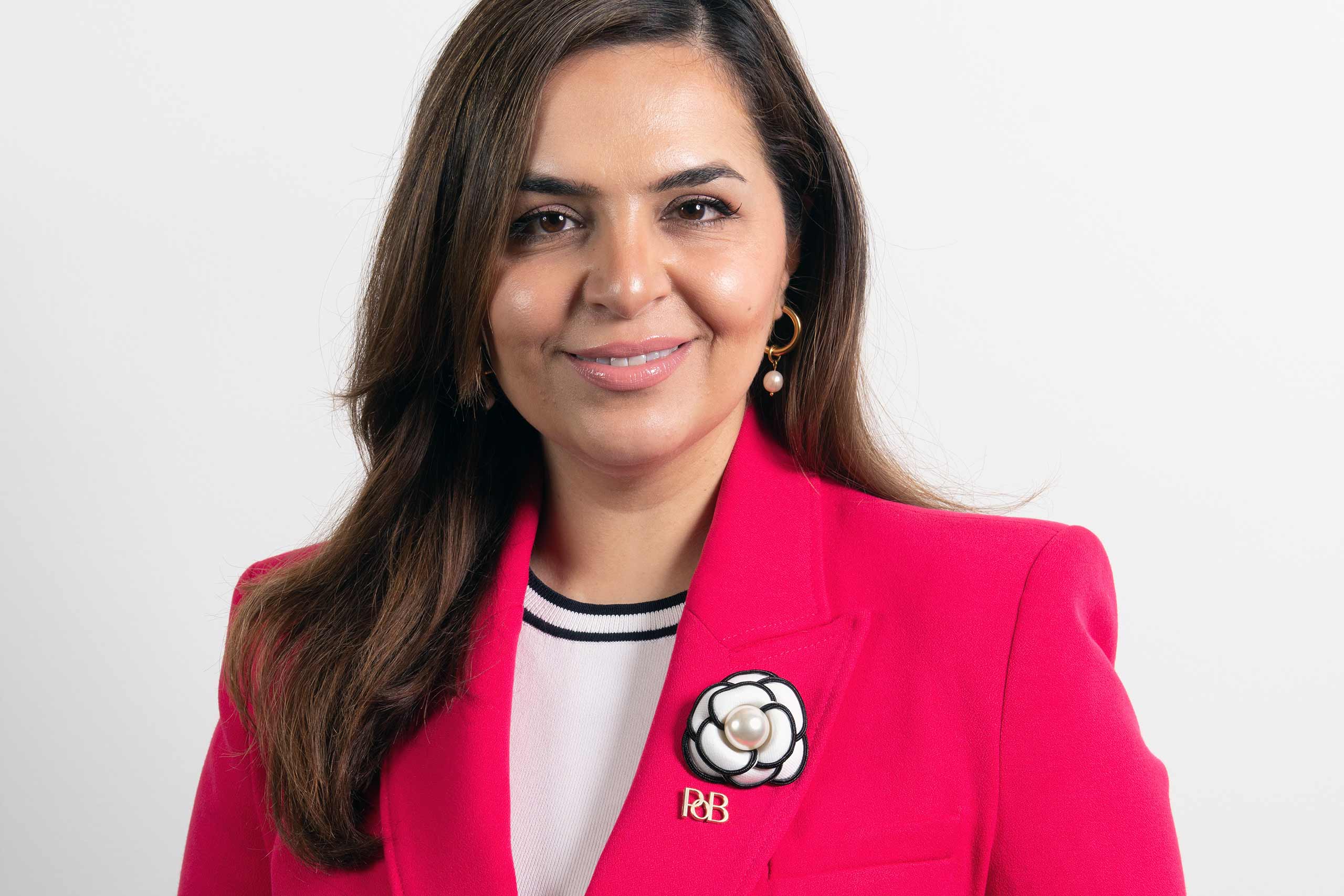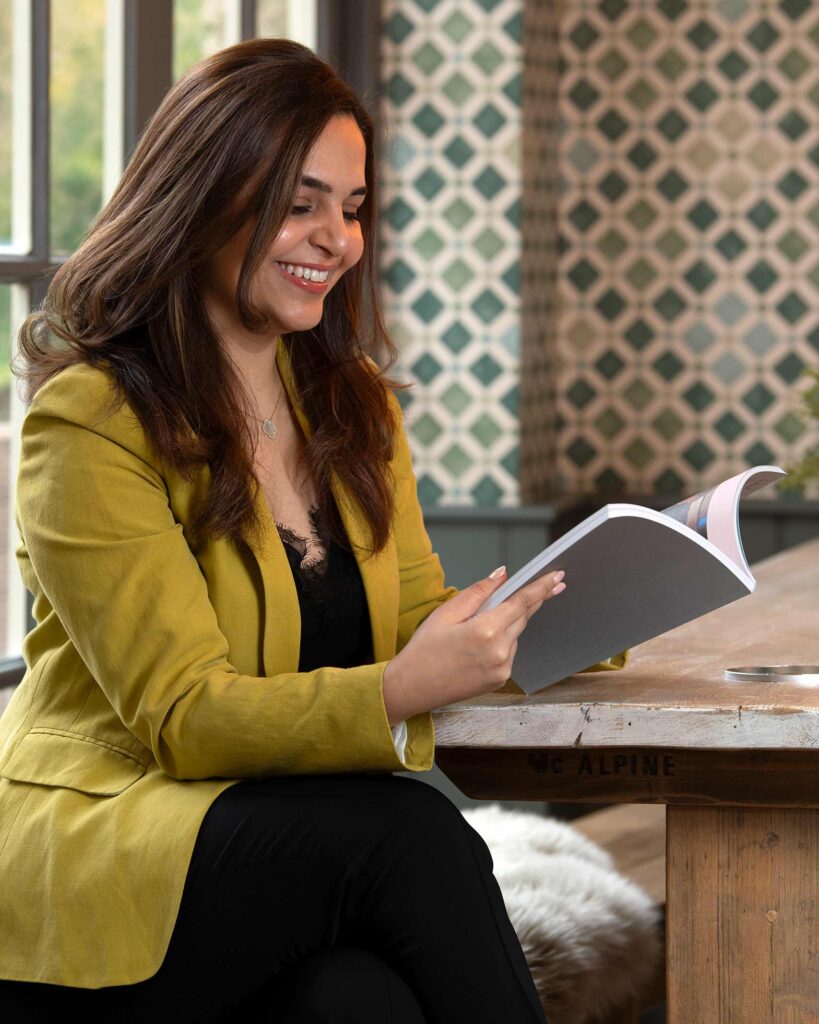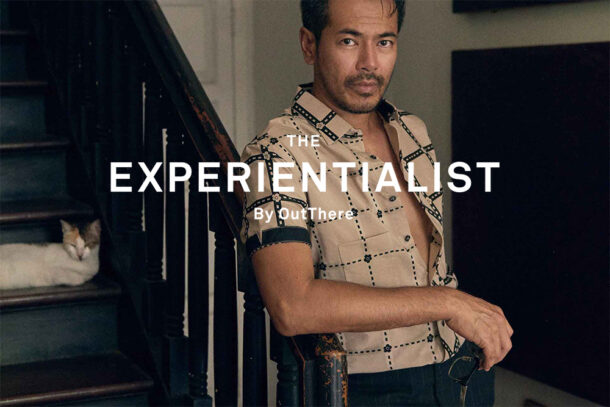Few are the hospitality brands with female leaders, and fewer still are those with female leaders of non-white backgrounds. But PoB Hotels, the collection of independent and luxurious places to stay that previously went by the name Pride of Britain Hotels, marks an exception to this rule. The brand’s CEO Kalindi Juneja has been responsible for keeping PoB ahead of the curve, stating that diversity and inclusion are a necessity, not a nice-to-have, in hospitality. OutThere meets Kalindi to discuss what progress has been made – and what more needs to be done to achieve meaningful inclusion.
I recently had the joy of meeting Kalindi Juneja, the CEO of PoB Hotels, an impressive portfolio of independent hotels across the British Isles. Like Kalindi, I consider myself someone who can appreciate a beautiful hotel, and my love for the art of hospitality started early.
Growing up in the city of Bangalore (now Bengaluru) in southern India, the way we travelled as a family was incohesive. To my father, the purpose of a hotel was merely functionality – to check in, dump our bags and start exploring from sunrise to sunset. My mother, on the other hand, loved hotels, especially heritage properties in the state of Tamil Nadu, where she would sit on one of the ornate brass swings in the hotel’s courtyard and point out little artistic details such as carved wooden rosewood panels and opulent Tanjore paintings.
Though I am very much like my father who was also a curious, enthusiastic explorer, I started appreciating hotels from my mother, who’d tell me to spend more time talking to the staff, understand their backstory, and also to slow down to take a minute and notice the little, tasteful regional touches in each property.
Ever since I read Arthur Hailey’s 1965 novel Hotel, I’ve always been intrigued not just by hospitality, but also by who sits in management and takes the reins. Hospitality in the UK has been an industry powered by both men and women, where the latter often make up over 50 per cent of the workforce. However, when it comes to leadership, positions are still largely male-dominated, and women only account for a staggering seven per cent of executive roles.
This is why it is important now more than ever for women’s voices to be heard and taken seriously, beyond a post shared on LinkedIn by male colleagues annually applauding the women they work with on International Women’s Day. Kalindi Juneja echoes this sentiment. She is the company’s first female CEO, and as I interviewed her, I quickly understood why women make great leaders in hospitality – they’re emotionally intelligent, collaborative, mindful risk takers and most of all, they care.
Kalindi is of South Asian heritage and grew up in Singapore. It wasn’t until her move to the UK that she was probed about her cultural and ethnic heritage, starting with the dreaded question “But, where are you really from?” Like Kalindi, though I lived in Bangalore, which is culturally diverse, I didn’t feel like I was any different from my peers or neighbours. I truly comprehended what my heritage meant after I moved to London fifteen years ago. I have also faced similar questions on my ethnicity rather than my work or my ideas, from professors at university, as well as former colleagues.
What I admire about Kalindi’s approach is the idea of embracing these moments and understanding that other countries may not have had exposure to multiculturalism and how it is up to us to connect, share and, as she puts it, gently broaden their understanding.
Diversity in hospitality has come a long way, but there’s a lot more to be done, especially at a leadership level, where, as Kalindi says, it is important to redefine the idea of traditional management. She also highlights how inclusivity in the hospitality sector benefits everyone and why, in the ever-changing and unpredictable world we live in, those from underrepresented backgrounds should be confident, invest in themselves and trust their voices.
Kalindi, can you tell us about what first drew you to working in the hotel industry and what your trajectory was like from there to becoming the CEO of PoB Hotels?
From the very beginning, I was drawn to the magic of hotels. They’re places where some of life’s most treasured moments unfold – celebrations, reunions, moments of peace, discovery, and joy. I’ve always loved the art of service and the beauty of travel, and I saw hospitality as the perfect blend of the two. There’s something incredibly special about being part of creating those experiences for others, and I knew early on that I wanted to be part of that world.
I started my career in hospitality with a deep appreciation for the detail, care, and creativity that go into crafting unforgettable stays. Over the years, I have had the privilege of working with some truly iconic hotel brands across the globe, which gave me a rich, international perspective and a profound respect for the individuality of each property and the people behind them.
As I progressed, I became especially passionate about championing independent hotels: places with soul, story, and a deep connection to their local culture. During my time at Relais & Châteaux, and now as CEO of PoB Hotels, I’ve developed a real understanding of the challenges these unique properties face in a market dominated by global chains. That’s only deepened my commitment to supporting and elevating them.
When I joined PoB Hotels in 2021, I was excited by the chance to help reimagine a beloved British brand and lead it into a new era. Becoming the company’s first female CEO was an incredible honour, and with an all-female team by my side, I’m proud to be part of a shift in what leadership in hospitality looks like. I believe inclusive leadership is not only powerful, it’s essential for real, lasting change.
Looking back, my journey has been one of discovery, growth, and genuine joy. I’ve always believed that the best hospitality comes from the heart, and I’m incredibly grateful to have built a career doing what I love.
Walk us through your experiences as a woman and, specifically, as a woman of South Asian heritage in the industry.
I grew up in Singapore, a true melting pot of cultures, where diversity was simply a way of life. It was completely natural for me to be surrounded by people from all backgrounds, speaking different languages, celebrating different festivals, and sharing different stories. I never really thought about my ethnicity as something separate or defining. I saw people for who they were, not where they came from, and I assumed the world worked that way, too.
From a young age, I travelled extensively with my family, and later on, I had the chance to live and study across several continents. That international education gave me not only a global perspective but a deep appreciation for the richness that comes from different cultures coming together. My closest friends were from all over the world, and I never felt “other” or different.
It wasn’t until I started working in the UK that I became more aware of my heritage in a new way. Suddenly, my name sparked curiosity in almost every conversation. I’d often get asked “where are you from?” followed closely by “no, but where are you really from?”, and it made me pause. For the first time, I began to see myself through a different lens, not because I had changed, but because the way others saw me had.
That experience was eye-opening. It wasn’t necessarily negative, but it did shift my awareness. I realised that while I had grown up embracing multiculturalism without thinking twice, not everyone had the same exposure or perspective. Over time, I learned to embrace those moments as opportunities to connect, to share, and to gently broaden someone’s understanding.
As a woman of Asian heritage in a traditionally male-dominated industry, I’ve certainly had moments where I’ve felt the weight of being “different”, but it’s shaped my leadership style, my empathy, and my passion for inclusive hospitality. I’ve always believed that the industry thrives when it reflects the world it welcomes, and that means making space for all voices, all backgrounds, and all stories.
What would you say has been the biggest challenge you’ve faced as a hotelier so far?
One of the biggest challenges I’ve faced has been navigating the delicate balance between preserving the individuality of independent hotels and pushing for innovation and progress in a fast-moving world. Independent properties often have such deep-rooted character and charm; they’re full of soul, history, and personal stories. But that also means change can feel daunting, even when it’s necessary for long-term success.
Helping owners and teams embrace fresh thinking, whether that’s around sustainability, digital transformation, or evolving guest expectations, while still honouring what makes their hotel special, has required a great deal of sensitivity, collaboration, and trust-building. It’s not about sweeping change, but about thoughtful evolution.
There have also been moments, especially as a woman in leadership, where I’ve had to work a little harder to be heard or taken seriously. But rather than let that discourage me, it’s fuelled my drive to lead with authenticity, empathy, and results.
Can you share what you’re most proud of and what your vision is for the future of PoB Hotels?
One of my proudest moments as CEO has been leading our rebrand in 2023. It was a bold but necessary step: refreshing the brand for a new generation while still honouring our heritage. We’ve seen a real shift in our guest demographic, with nearly 50% now under 45, which is something many more modern brands would envy. Yet, we’ve done this without alienating our loyal, longstanding guests, something I’m particularly proud of.
We’ve also launched meaningful initiatives like PoB Breaks, which offer curated journeys across the British Isles, and our Ambassadorship programme featuring well-known names like Matt Tebbutt and George Clarke. Both initiatives have helped us grow awareness and deepen guest engagement.
For me, it’s about leading with purpose and evolving with dignity: staying true to who we are while embracing the future. And my vision is to keep building a brand that celebrates individuality, inspires discovery, and continues to set the standard for independent British hospitality.
How much diversity have you come across within leadership in the industry? Are qualified women of colour, members from various religious backgrounds and the LGBTQ+ community landing top management roles?
The hospitality industry has made progress, but there’s still a long way to go when it comes to true diversity at a leadership level. Representation of women, particularly women of colour and those from diverse religious or LGBTQ+ backgrounds, is still limited in top management roles. There are talented individuals from all walks of life in this industry, but the pathways to leadership haven’t always been accessible or inclusive enough.
Personally, I didn’t fully notice the lack of representation until I stepped into more senior roles. That’s when it became clear how few people there were who looked like me or shared similar lived experiences. While it’s encouraging to see more conversations around diversity and inclusion, we need to move beyond awareness into action, creating opportunities, removing bias, and rethinking traditional leadership models.
What improvements need to be made in the industry and what changes would you like to see that pave the way for future women CEOs?
One key shift I’d like to see is how we define leadership. We need to move beyond outdated perceptions and start valuing traits like emotional intelligence, authenticity, and collaboration – qualities that drive modern, effective leadership.
To the next generation of women leaders: believe in your place at the table. Confidence grows through competence, so invest in your skills, trust your voice, and don’t wait for permission to lead.
The industry is changing, and I’m proud to be part of that shift, but we must keep pushing. A more diverse, inclusive hospitality sector isn’t just better for women; it’s better for everyone.
What is PoB Hotels doing to actively embrace people from diverse backgrounds? How is this reflected across the brand?
At PoB Hotels, championing individuality is at the heart of everything we do. Supporting independent hotels means celebrating the unique character of each property, and that naturally extends to the people behind them, our team, and our guests.
Whether it’s through our hotel collection, our partnerships, or our internal team, we embrace diversity in all its forms: cultural, generational, and experiential. This commitment is reflected across the brand, including inclusive storytelling in our campaigns and experiences, which encourage guests to connect with local culture, communities, and people. It’s about creating a brand that is authentic and welcoming to all, and that proudly reflects the diversity of the world we live in.
What trends have you noticed or believe will be pivotal in shaping luxury experiences for guests?
At PoB Hotels, we believe that understanding what matters most to our guests is the key to staying ahead in luxury hospitality. Our PoB Hotels Whitepaper, produced in partnership with luxury insights specialist Alitant, has become an essential tool in helping us, and our member hotels, decode the evolving behaviours of travellers.
The 2025 edition highlighted a number of critical trends shaping the future of luxury: culinary excellence continues to be a top priority, with over 70% of respondents saying food and dining experiences on property significantly influence their booking decisions. Guests are seeking both exceptional cuisine and authenticity. Locally sourced, seasonal ingredients, traditional recipes, and destination-led dining all play a major role.
There’s also the rise of hidden gems. Today’s traveller is looking beyond the obvious, favouring privacy, originality, and emotional connection. Properties in lesser-known yet beautiful parts of the country are gaining traction, especially when tied to local culture.
And wellness is no longer a niche. It’s a core pillar of luxury. Our Whitepaper revealed a strong shift towards experiences that support both mental and physical well-being. This insight led us to launch Nurture Your Soul, a brand-wide wellness initiative celebrating everything from energising outdoor pursuits and serene spa rituals to nourishing food and mindful spaces across our collection.
Sustainability is essential. Nearly 50% of luxury travellers now actively consider environmental impact when booking accommodation. Sustainability is no longer a ‘nice to have’. It’s expected. Through our partnership with EarthCheck, we support our hotels in embedding eco-conscious practices at every operational level, without compromising on guest experience.
And lastly, the digital influence is undeniable: while 76% of travellers rely on reviews, and almost 70% admit to booking last-minute, it’s visual storytelling that’s capturing attention. Nearly 70% say photo and video content is what inspires their travel choices.
Photography courtesy of PoB Hotels







